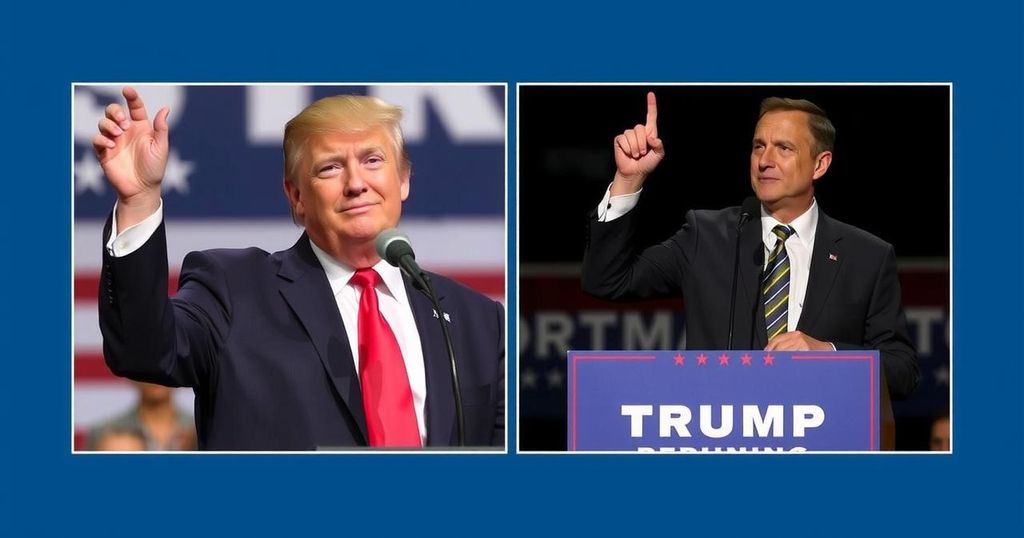Three special elections in Virginia will determine control of the state legislature, providing early insights into voter sentiments since Trump’s election. They involve key races in the Senate and House of Delegates, with parties focusing on critical issues like abortion rights and economic challenges. The outcomes could have far-reaching implications for the political landscape in Virginia as both parties strategize for legislative dominance.
In Virginia, three pivotal special elections are scheduled, which will significantly influence control of the Statehouse and serve as an early indicator of voter sentiments following President-elect Donald Trump’s victory in November. The outcomes will determine the balance of power between the Democratic and Republican parties in the Virginia Senate and House of Delegates, with Senate Democrats currently holding a narrow 20-18 majority and House Democrats having a slim 50-49 lead, necessitating these elections for both parties’ strategic objectives.
The election of Republican Tumay Harding and Democratic Del. Kannan Srinivasan in northern Loudoun County is critical as they vie for the Senate seat left vacant by Suhas Subramanyam’s ascent to the U.S. House. Concurrently, Democratic JJ Singh and Republican Ram Venkatachalam are competing for Srinivasan’s seat in the House of Delegates. In central Goochland County, Republican Luther Cifers faces Democrat Jack Trammell in a race for a Senate seat, aimed at succeeding U.S. Rep. John McGuire.
Candidates are focusing on key issues central to their campaigns; Singh and Srinivasan have heavily emphasized abortion rights as Virginia Democrats strive to protect such rights through constitutional amendments. “What motivates me is the high-stakes election,” stated Srinivasan. In contrast, Harding and Venkatachalam have taken a stance on parental rights, crime, and the economy, indicative of their aim to shift seats from Democratic control.
Cifers, emphasizing a principled approach to governance, plans to bring attention to housing and economic issues in the Virginia legislature. “I’m much more concerned about doing the right thing, making sure that we’re constitutionally minded and respecting the will of the voters,” he remarked. Trammell, recognizing the changing demographics of District 10, seeks to create a more competitive electoral environment, asserting, “There are factors that are transforming District 10.”
These elections are not just a quest for seats but will reflect the political landscape and voter tendencies in Virginia post-Trump’s election, with both parties keenly aware of the implications for future governorship and legislative control.
The significance of these special elections in Virginia lies in their potential to reshape the political landscape in the state. Following the impact of President Donald Trump’s electoral win, there has been heightened interest in how this might affect voters’ sentiments and party alignments at the state level. With Virginia’s state legislature having a delicate balance of power, the outcomes of these elections are poised to reveal shifting political dynamics and electorate priorities. The races are particularly crucial given that they will fill positions vacated by elected officials transitioning to federal roles, thereby demonstrating the current political climate in Virginia.
The outcomes of the upcoming special elections in Virginia will not only determine the immediate control of the state legislature but will also serve as a pivotal measure of voter sentiment in the aftermath of the Trump electoral victory. The competing narratives around issues such as abortion rights, parental rights, and economic stability illustrate the broader ideological clash between the Democratic and Republican parties in the state. Observers and analysts will closely monitor these contests as indicators of political trends that may shape Virginia’s future governance.
Original Source: apnews.com






